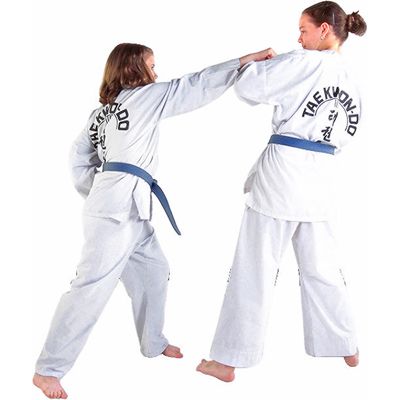From Longman Dictionary of Contemporary Englishtaekwondotae‧kwon‧do /taɪˈkwɒndəʊ $ -ˈkwɑːndoʊ/ noun [uncountable]  a style of fighting from Korea, and also a sport, in which you kick and hit but do not use weapons → karate
a style of fighting from Korea, and also a sport, in which you kick and hit but do not use weapons → karate
 a style of fighting from Korea, and also a sport, in which you kick and hit but do not use weapons → karate
a style of fighting from Korea, and also a sport, in which you kick and hit but do not use weapons → karateExamples from the Corpus
taekwondo• Knockouts are not uncommon at taekwondo tournaments.• Because taekwondo was originally designed as an art of self-defence, blocking techniques are highly developed and refined.• After all, she's a top-flight taekwondo competitor herself.• He has, indeed, come to the crossroads of his taekwondo career.• In 1966 the first international taekwondo federation was formed.• The next influence on the development of taekwondo came from General Choi Hong Hi.• Stretching exercises are especially important to enable students to perform the fantastic kicks that are the hallmark of taekwondo.• This is why it is said that, to understand the taekwondo system, it is essential to understand the patterns.Origin taekwondo (1900-2000) Korean “art of hand-and-foot fighting” 
